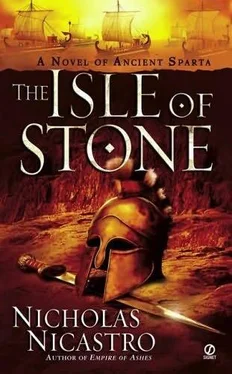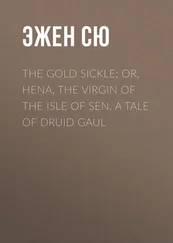Nicholas Nicastro - The Isle of Stone
Здесь есть возможность читать онлайн «Nicholas Nicastro - The Isle of Stone» весь текст электронной книги совершенно бесплатно (целиком полную версию без сокращений). В некоторых случаях можно слушать аудио, скачать через торрент в формате fb2 и присутствует краткое содержание. Жанр: Исторические приключения, на английском языке. Описание произведения, (предисловие) а так же отзывы посетителей доступны на портале библиотеки ЛибКат.
- Название:The Isle of Stone
- Автор:
- Жанр:
- Год:неизвестен
- ISBN:нет данных
- Рейтинг книги:4 / 5. Голосов: 1
-
Избранное:Добавить в избранное
- Отзывы:
-
Ваша оценка:
- 80
- 1
- 2
- 3
- 4
- 5
The Isle of Stone: краткое содержание, описание и аннотация
Предлагаем к чтению аннотацию, описание, краткое содержание или предисловие (зависит от того, что написал сам автор книги «The Isle of Stone»). Если вы не нашли необходимую информацию о книге — напишите в комментариях, мы постараемся отыскать её.
The Isle of Stone — читать онлайн бесплатно полную книгу (весь текст) целиком
Ниже представлен текст книги, разбитый по страницам. Система сохранения места последней прочитанной страницы, позволяет с удобством читать онлайн бесплатно книгу «The Isle of Stone», без необходимости каждый раз заново искать на чём Вы остановились. Поставьте закладку, и сможете в любой момент перейти на страницу, на которой закончили чтение.
Интервал:
Закладка:
Cleomenes decided he could not live with his shame. He was guarded by a helot with a knife. The king, using his natural talents of command, compelled the weak-minded man to hand it over. After ordering the helot from the room, he used the blade to flay himself alive, cutting the skin from his legs, working his way up his body until he carved bolts of flesh from his abdomen. When he had half disemboweled himself, Cleomenes called the guard back, returned his knife, and died.
Cleomenes’ end was a popular story among the boys of the Rearing, presenting as it did both a gory tale and an implicit challenge: under similar circumstances, would any of them have the courage to make his end just as emphatic? Epitadas had always declared that he had. Branded now by defeat, locked in the bowels of an enemy ship, surrounded by tremblers and low-caste Athenians, his time now seemed at hand.
He grasped the wooden stake in his sweaty palm, cherishing the prospect of his release. Until then, he would refuse every comfort, shut his ears to the words of friend and foe, and wait for the dark to prove his virtue.
X
1
No effort of Cleon’s was necessary to spread word of the surrender at Sphacteria. It swept by horseback over the breadth of the Peloponnese, by foot messenger, and donkey deep into the roadless hills of Phocis, Aetolia, and Epirus, and by ship all the way to Italy, the islands, and Asia Minor. Wherever Greeks lived, men stood in the marketplaces and shook their heads-how could such a thing happen? Laconian wet nurses, who were popular amongst the nobility everywhere, were summoned to explain the news to their puzzled masters; where the Lacedaemonians fought the allies of Athens, such as in Thrace and Sicily, they found renewed spirit on the part of their enemies, who now saw them as fallible, even beatable. Some dismissed the story, preferring to believe it was Athenian propaganda. But the skeptics were hard put to explain how, if the story was a lie, Cleon was in a position to dedicate thirty full Lacedaemonian panoplies-a tenth of the spoils-to Apollo at his sanctuary in Delphi, and another thirty to Zeus at Olympia.
In Laconia, word of the disaster plunged the people into a common funk. The quiet orderliness of Sparta became a stifling silence, as if a great, invisible blanket had been laid on everything. The Gerousia met in emergency session, but no resolutions were passed, and no word of the deliberations leaked out. The Spartiates, meanwhile, kept watch on the helots, anxious for any sign of revolt. But most of the helots knew better than to display their true feelings. Instead, among those with a temperament for it, there was a deep, hidden flush of spiteful satisfaction.
Matters took a bizarre turn when a foreign trireme approached the Spartan port at Gytheion, its sail bearing the insignia of the Athenians,???. The sight of it pulling into the roads sent the town into a panic. Had the enemy decided to capitalize on their victory at Pylos by burning down the port? The population-composed of mostly Nigh-dwellers and helots-rushed to find any Spartiate from whom to take instructions.
But it soon became clear that this was no invasion; the trireme was not the vanguard of a fleet, but came alone. Closer, and a flag of truce could be seen flying from a jackstaff. The helmsman worked the tillers with an expertise rare among the Peloponnesians, picking his way through the crowd of merchantmen and penteconters, turning the hull broadside just as the crew withdrew their oars from the water. By force of momentum, the ship came to rest against the wharf with a gentle bump.
The Acharnians on the Terror’s outriggers kept their seats, eyeing the Lacedaemonians with smoldering contempt. The latter glowered back, hands on their spears and swords, until their attention was diverted to activity on the deck. Xeuthes leapt ashore first, wearing a leather corselet and boots but weaponless. After surveying the crowd around him, he turned to receive the handles of a stretcher that had been carried up from the hold. The stretcher had the figure of something like a man on it, covered with a blanket soaked through with blood.
With Stilbiades handling the other end, they bore the stretcher down from the deck and lowered it gently to the wharf. The Nigh-Dwellers’ eyes followed every movement, their curiosity beginning to outweigh their hostility. Xeuthes faced them.
“Tell your masters that we declare, by the gods, that we did this man no harm.”
He held up the splinter-a stake, really-that Epitadas had used to cut himself. It was dyed now with the purplish blue of congealed blood, with strings of skin and muscle still embedded in it. Xeuthes placed it on the blanket as he would the sword of a gallant warrior beside his corpse. Then he turned to Stilbiades, whispering, “We should go while they’re preoccupied.”
As the crowd closed around the stretcher, Patronices the beam man, gazed out at the town. “It’s the port of Sparta, boys! Take a good look now-we’ll never see it again.”
“Speak for yourself, defeatist!” countered Dicaearchus.
“Suit yourself… while you’re busy here your mother will be playing my flute.”
“I’m just happy to get that carcass off the ship,” said Oreus from the deck. “The way that Spartan went-that kind of thing can spoil everything.”
On that none would disagree. That evening, after grounding the ship on a sandy beach at Cythera, the crew performed the ablutions that would purify it, scrubbing the decks with sand and seawater just like a family cleansing their house after a relative had died. The griffin figurehead was likewise washed, and the very bodies of the crewmen, all of whom were every bit as polluted by Epitadas’ act.
Lastly, the Spartan prisoners were tossed rags with which to clean themselves. Frog and the others complied, but Antalcidas did nothing, having yet to banish the stupefying image that had met his eyes when he woke that morning. He ignored Stilbiades’ order to wash, and Xeuthes’ as well, until the captain ordered a gang of oarsmen to bathe him forcibly. They set upon him while his arms were shackled, scouring his skin with dry sand until he bled. He then sat in the hold, covered with a cement of sand and dried blood, for the rest of the trip to the Piraeus.
It was some time before the first Spartiate arrived to take charge in Gytheion-a junior officer who had been hunting in the hills above the town. Looking down at the mass that had once been Epitadas, Rehash commanded, “Get away from him, you dogs!” He then re-covered the body, which had been exposed by the curious onlookers, with a tenderness worthy of a true hero-for anyone who had gone through the Rearing could recognize at once a death befitting the legend of Cleomenes.
Patronices was not entirely correct. A decade later, some of the men of the Terror would look out from their seats and glimpse the Spartan port again, albeit at a great distance. They would see it as part of a force of forty thousand men and two hundred ships, on their way west for Alcibiades’ great, doomed expedition against the city of Syracuse.
2
A deputation of Spartiates came to Kynosoura to inform Damatria of the death of her son. It was the moment a noblewoman prepared for all her life-the culmination of her son’s education, in a sense, and the apogee of her personal honor. The fact that he appeared to take his own life gave her pause, to be sure, but like the other Spartiates she understood and accepted the special circumstances of Epitadas’ case. The death of a man who preferred self-mutilation to confinement, who would make a spectacle of himself before the Athenians could do it for him, was a model for the generations.
Читать дальшеИнтервал:
Закладка:
Похожие книги на «The Isle of Stone»
Представляем Вашему вниманию похожие книги на «The Isle of Stone» списком для выбора. Мы отобрали схожую по названию и смыслу литературу в надежде предоставить читателям больше вариантов отыскать новые, интересные, ещё непрочитанные произведения.
Обсуждение, отзывы о книге «The Isle of Stone» и просто собственные мнения читателей. Оставьте ваши комментарии, напишите, что Вы думаете о произведении, его смысле или главных героях. Укажите что конкретно понравилось, а что нет, и почему Вы так считаете.










![Nicholas Timmins - The Five Giants [New Edition] - A Biography of the Welfare State](/books/701739/nicholas-timmins-the-five-giants-new-edition-a-thumb.webp)

